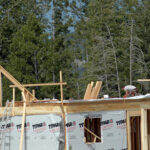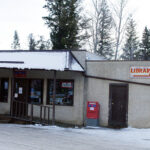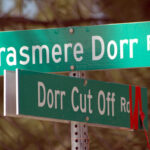Home »

Qat’muk ruling shows Canada’s hypocrisy
e-KNOW Editorial
By Ian Cobb
Last week (Nov. 2) the Supreme Court of Canada showcased to the world how full of B.S. Canada is when it comes to reconciliation with her First Nations people.
Leaning heavily on strict legalese formed by ears and minds hearing and understanding only European-Canadian ways, the nine Supreme Court judges ruled against the Ktunaxa Nation and Kathryn Teneese, on their own behalf and on behalf of all citizens of the Ktunaxa Nation v. Minister of Forests, Lands and Natural Resource Operations, et al.
The crux of the court ruling is that religious practice is not tied to place, in this case Qat’muk (Jumbo Valley) and constitutional guarantee of aboriginal rights does not provide indigenous people the right of veto over land development in the name of religious freedom.
The Ktunaxa people believe the long-speculated Jumbo Glacier Resort will drive the Grizzly Bear Spirit from Qat’muk, the traditional name for their spiritual territory, and thereby hinder religious beliefs and spiritual practices.
The place IS paramount to them. Places are paramount to First Nations people all over North America. Places are their ‘churches.’
Their places were ripped from their hands through force and the nudge nudge wink wink of law as continental conquest unfolded. One does not need a history degree to be aware of the complete and utter shagging that was bestowed upon First Nations people.
And that shagging continues today, despite rose-coloured glass-like rhetoric from higher government offices in Ottawa and Victoria, and rulings by courts.
Politicians say what they must; courts speak the truth. In this case, the Supreme Court spoke the truth and that is Canada is not willing to change her way of thinking or how it deals with First Nations people.
Much to the grand relief of those who value the compilation of wealth over all else.
Out of one side of her mouth Canada says she wants to reconcile with First Nations people for the myriad of wrongs perpetrated against them but out of the other she cites precedent and remains camped firmly on Judeo-Christian perceptions.
“The Ktunaxa must show that the (B.C.) Minister’s decision to approve the development interferes either with their freedom to believe in Grizzly Bear Spirit or their freedom to manifest that belief. Yet the Ktunaxa are not seeking protection for the freedom to believe in Grizzly Bear Spirit or to pursue practices related to it. Rather, they seek to protect the presence of Grizzly Bear Spirit itself and the subjective spiritual meaning they derive from it. This is a novel claim that would extend s. 2 (a) beyond its scope and would put deeply held personal beliefs under judicial scrutiny. The state’s duty under s. 2 (a) is not to protect the object of beliefs or the spiritual focal point of worship, such as Grizzly Bear Spirit. Rather, the state’s duty is to protect everyone’s freedom to hold such beliefs and to manifest them in worship and practice or by teaching and dissemination,” the Supreme Court judgment stated.
“Neither the Ktunaxa’s freedom to hold their beliefs nor their freedom to manifest those beliefs is infringed by the Minister’s decision to approve the project,” the Judges said.
I am not sure if the judges passed the decision with their fingers in their ears while they shouted “we can’t hear you!”
They clearly didn’t hear the Ktunaxa argument because they didn’t want to go there. Fear of the unknown and creating a precedent that would set off a firestorm from Canada’s lesser tolerant corners drove their decision as they ducked behind previous case rulings, and individual biases.
Robert Phillips, a member of the First Nations Summit and First Nation Leadership Council said the decision is “colonial” and it is. Completely.
“With this decision, the Supreme Court of Canada is telling every indigenous person in Canada that your culture, history and spirituality, all deeply linked to the land, are not worthy of legal protection from the constant threat of destruction,” said Kathryn Teneese, Ktunaxa Nation Council Chair. “This judgment should be alarming to Canadians, whether or not they consider themselves religious or spiritual. We brought forward our most private and sacred beliefs in the hopes the court would earnestly, and in good faith not just listen, but hear them.”
Reconciliation is now not up to the courts, she pointed out. So who and what is it up to now?
Canada’s top court has told First Nations people that their reverence of and need for spiritual places, which they utilized as their ‘churches’ for thousands of years before the arrival of European settlers and conquerors, does not ‘fit’ the mold created the past couple of hundred years.
Teneese said the establishment of protected areas for aboriginal people is a possible “way forward” to preserve the Grizzly Bear Spirit’s home.
She also noted the Ktunaxa do not want to bar people from access to Qat’muk – 55 km west of Invermere. “We just don’t want habitation there.”
Correctly, Teneese questions the fairness of the court ruling, pointing at language used.
“If another group had brought forward a religious argument would there have been ‘veto’ in the language? It seems we are not allowed to say no. Are we not part of the public? Are we something so separate that our views need to be in another box? I hope not. We should have some ability to express ourselves, without immediately applying labels to what we are trying to achieve.”
The Jumbo Glacier Resort process has been nothing but cheek and greasy games from the get-go. Backroom rampages – beginning with the NDP government of Mike Harcourt and the Liberal governments of Gordon Campbell and Christy Clark, led to the absurd resort municipality status on a high-country drainage with no residents. THAT kind of airy fairy insanity is okay but believing in ‘place’ to practice one’s religion is too airy fairy for the Supreme Court.
Such a vast sea of hypocrisy.
Calling the Supreme Court’s ruling “profoundly disappointing,” Teneese suggested the Supreme Court of Canada should have a First Nations representative.
“Our beliefs – our spirituality needs to be taken into consideration by a statutory decision-maker,” she said.
And that might be a good first step if Ottawa is truly serious about reconciliation.
And the right thing for Victoria to do, seeing as how Jumbo Glacier Resort remains nothing more than a snow-covered slab of cement sitting in an avalanche path and the only people who would consider investing in a white elephant on a steadily declining glacier could be classified as ‘absolutely freaking bonkers,’ is to end this tiresome charade – now.
The proponent completely failed to meet the requirements set out by the provincial government and can now only build a 2,000-bed resort (as opposed to a 6,500-bed resort), or face another lengthy review process, which likely wouldn’t go well with a NDP-Green Party coalition running the show in Victoria.
And that is why said NDP-Green Party coalition should show the Ktunaxa people, and all the people of the Kootenays, that their years of opposition to the project in the legislature weren’t merely more empty words by a shallow, calculating ‘august’ body that clings to precedent, even if it is archaic, hypocritical and laced with fear.
Finally and sadly, despite all the years of tug-of-war over the Jumbo Valley, all the divisions created in Kootenay communities as sides formed and all the smoke and mirrors used to put lipstick on a white elephant, at the end of the day – nothing will ever happen in Jumbo, aside from a set of municipality-founding bylaws being established and RK Heli Ski being allowed to continue its business in government tenured terrain the company has claimed it has needed for its ongoing livelihood since the mid 1990s.
The Grizzly Bear Spirit will remain home while an outlandish dream developed in a much different time will eventually dissipate and cease to be.
 – Ian Cobb is owner/editor of e-KNOW. He reckons he has written more than half a million words on Jumbo in the past 26 years.
– Ian Cobb is owner/editor of e-KNOW. He reckons he has written more than half a million words on Jumbo in the past 26 years.







